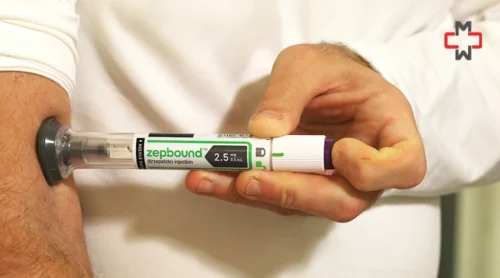Weight loss should be maintained under a long-term commitment and medical supervision. The Zepbound’s side effects develop and vary as the months and years pass, with the body getting used to the treatment. Knowing what to expect over the long term will ensure that you work with your healthcare provider towards safety and treatment success.
The most prominent side effects occur early in the Zepbound treatment phase. During this period, nausea and vomiting and abdominal discomfort are common due to the body’s reaction to the medicine in regard to gastric emptying and appetite regulation. The early side effects generally disappear over time; however, users who have been on Zepbound in excess of a year will run into other issues that need attention.
Gastrointestinal Effects During Extended Treatment
Digestive system adaptations continue during long-term Zepbound therapy. Patients may experience symptoms such as nausea initially, only to develop different GI patterns after months of therapy. Constipation might become more continuous, needing diet and lifestyle changes to remain comfortable in digestion.
Zepbound side effects affecting the digestive system might in some cases intensify as dosages are increased in the course of treatment. Your care provider will follow these changes with interest and might adjust your dosing schedule or advise you of supportive therapies to minimize the discomfort as much as possible while maintaining at least some degree of therapeutic effect.
Nutritional absorption deserves special attention during extended use. Reduced food intake and altered digestion patterns can impact vitamin and mineral levels over time. Regular blood work helps identify potential deficiencies before they become problematic, allowing for targeted supplementation when necessary.
Metabolic Monitoring and Long-Term Safety
Extended Zepbound therapy requires comprehensive metabolic monitoring to ensure optimal safety outcomes. Zepbound side effects can include changes in blood sugar levels, even in patients without diabetes. Regular glucose monitoring helps detect any concerning trends that might require treatment modifications.
Thyroid function monitoring becomes increasingly important during long-term use. Some patients experience changes in thyroid hormone levels that require medical attention. Your healthcare provider will likely recommend periodic thyroid function tests to ensure this vital gland continues operating normally throughout treatment.
Kidney function assessment forms another crucial component of long-term safety monitoring. Dehydration from persistent nausea or reduced fluid intake can stress kidney function over time. Regular blood tests help identify early changes that might require intervention.
Managing Injection Site Reactions
Long-term Zepbound side effects often include injection site reactions that may change character over extended use. Initial redness and swelling at injection sites typically resolve quickly, but some patients develop persistent skin changes or increased sensitivity over time.
Proper injection technique becomes even more important during extended treatment. Rotating injection sites systematically prevents tissue damage and reduces the likelihood of developing lipodystrophy—changes in fat tissue that can affect medication absorption and cause cosmetic concerns.
Psychological and Social Considerations
Extended weight loss treatment can bring unexpected psychological Zepbound side effects that emerge over time. Rapid weight changes may affect mood, self-image, and social relationships in ways that require professional support. Mental health monitoring forms an essential component of comprehensive long-term care.
Working With Your Healthcare Team
Successful long-term Zepbound therapy requires strong communication with your medical team. Regular appointments allow for proactive management of Zepbound side effects before they become serious problems. Don’t hesitate to report new symptoms or concerns, even if they seem minor—early intervention often prevents more significant complications.
Your healthcare journey deserves comprehensive, compassionate support that addresses both immediate concerns and long-term wellness goals throughout your treatment experience.
